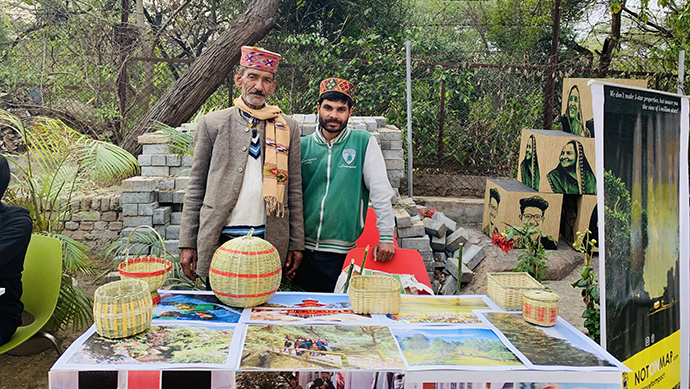|
Financing the Green Transition – Strengthening of Micro, Small and Medium Enterprises in a Post Pandemic World
Micro,
Small and Medium Enterprises (MSMEs) are at the Business stability and sustainability of MSMEs does not necessarily indicate their ecological performance and responsibility. Despite their high social and local economy indicators, the environmental performance of MSMEs is questionable and their vulnerability to climate change impacts and natural disaster events remains high. This is not only in the case of units involved in manufacturing and in primary sectors, but even in many MSMEs in the waste management and recycling sectors which are generally perceived as green. Although, at the individual level, their ecological impacts are small, the sheer numbers make the total volume of impacts significant. This was evident in the recent pandemic induced lockdown when incredible air and water quality improvements were observed in locations that had high densities of small scale manufacturing units. It is in this light that we need to reflect on the MSME focus in India’s post COVID economic recovery package. In the recent times, finance is seen as a key lubricant to drive MSMEs towards greener, climate responsive and circular business models. This is a nascent space and there are multiple challenges at both the demand and supply end of finance. Capacity gaps exist at the end of MSMEs, especially in their abilities to formulate business plans that reflect the value of green and inclusive parameters in their bottom lines. At the same time, the financial services eco-system is not ready with the right products, instruments, delivery systems and enabling policy and market environment. The resource efficiency, circular economy and climate mitigation potential that may be unlocked through MSMEs can only be realised with a shared understanding of the needs as well as of the constraints of the different related stakeholders. The pandemic has given us an opportunity to rethink the relationship of the macro with the micro; of large financing infrastructure, institutions and regulatory frameworks to respond appropriately to the need and challenges of the large numbers of small scale and decentralised businesses. Key stakeholders, especially MSMEs, financing institutions and regulatory bodies need to co-design financial frameworks, instruments and products for enabling MSMEs to go green. Think-tanks and civil society organisations can play a vital role here in providing a neutral space for dialogues to build a shared understanding regarding the taxonomy, frameworks and parameters for green finance for MSMEs. This can go a long way in helping co-create appropriate financial products and instruments. Civil society can further play a key role in piloting and testing new products with local micro enterprises, extend ecological and financial literacy to the entrepreneurs and track the impacts of green finance for MSMEs. Going forward, India’s recovery package for the MSMEs, will be judged not only by cumulative financial returns of the sector but also by the environmental and social benefits accrued to society. Green transition in the sector will be assessed not just by the macro-shifts engineered but also by local benefits accrued to the multitude of micro and small enterprises, women and vulnerable populations as well as the contribution to local water, air and soil quality improvements and rejuvenation of local ecosystem services made possible through local businesses. ■
Zeenat Niazi
|
 heart of the Indian
economy, with significant contribution to national GDP and employment. The SDG framework brought the fundamental role of MSMEs in local and
national development to centre stage. Government too has focussed on the
business stability and financial sustainability of MSMEs as a priority
in the national development plans including giving the sector a special
focus in the post pandemic economic revival strategy in 2020.
heart of the Indian
economy, with significant contribution to national GDP and employment. The SDG framework brought the fundamental role of MSMEs in local and
national development to centre stage. Government too has focussed on the
business stability and financial sustainability of MSMEs as a priority
in the national development plans including giving the sector a special
focus in the post pandemic economic revival strategy in 2020.